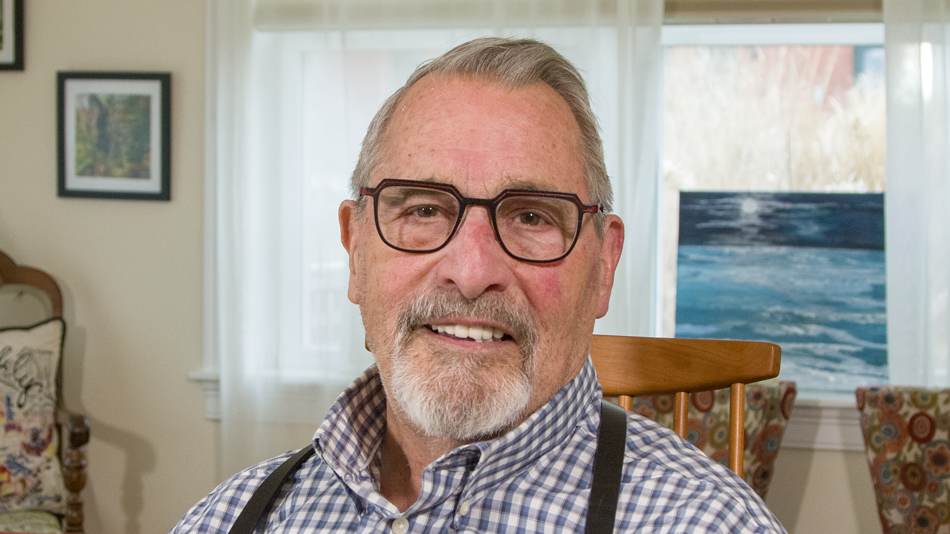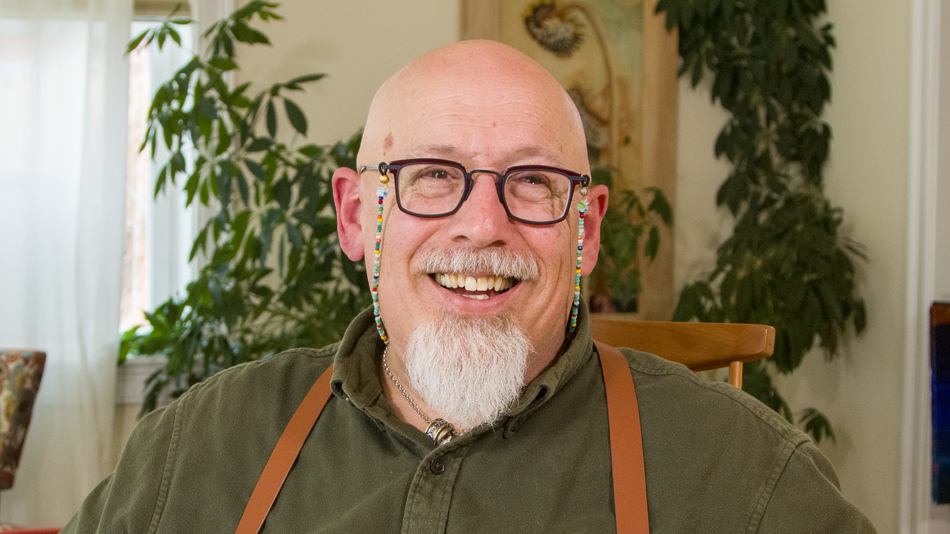I’m John Jarboe. I’m from Warren, Michigan.
I was born to a bunch of Republican Polish Catholics with a hunting license in my little paw. I played hockey for eleven years and baseball and my dad was always trying to really butch me up. I was 14 going on 15. I was in a hockey game. I got checked in between two boys. It was a sandwich, but not a good kind. So I broke my arm and I developed sports-induced asthma, which was very convenient, so I stopped doing sports.
I was also a singer and they were doing “Pippin” the musical at my high school, so I auditioned. I remember I played a head in the battle – there’s like a body that sings and then there’s a head and I was the head. My whole body was blocked off. I was the singing head. I was terrified.
I just remember looking up from that perspective at the guy who was playing Pippin – he was super cute and kind of queer – and all of these people dressed in fabulous costumes dancing around, I mean, telling heteronormative stories in a really, really gay way, and feeling like this is where I belong. These are my people. So I invested in theater and I thought theater was a safe space for me.
And then I went, you know, I went through college at Michigan and I moved to Philadelphia in about 2009. I really thought I had found my community and my space. I was working on a piece called “The 24-Hour Bald Soprano” and I was in rehearsal one day. And I kept doing this scene, this husband and wife scene, I was the husband unfortunately.
And the director kept saying to me over and over again, “Can you make that – it’s a little gay. Can it be a little less gay?” And this was a, this was a person that was, thought of themselves as kind of hip and maybe a little bit queer themselves, so they felt like they could talk to me in that way. So I was running into a lot of those circumstances as someone who is transformative but because of who I was or how I was perceived, people, directors would speak to me in a particular way, too. They would either expect me to butch up or they felt like they could talk about my identity in a way that I would understand as direction.
I was playing the Scarecrow in Wizard of Oz at the Media Theatre and the head of the Media Theatre had some grant money and some space and said, ‘Will you do a cabaret?” I didn’t really know what cabaret was at the time. I thought, I don’t want to just sing songs. I want to create something that feels more meaningful. I started looking at World War II music and I did this piece called, “Back in the Army Cabaret” about what it meant to be a man and what it meant to come out in the military in World War II, using some source text from some letters between gay soldiers.
That snowballed into people – people saw that and they wanted me to do more work. I ended up doing an Edith Piaf show where I played Edith Piaf among six other dancing, singing Edith Piafs.
Someone that was working with my company at the time, who’d seen me in a ton of other things in Philadelphia before she saw me in the Bearded Ladies Cabaret, which is the company, she said to me, “You know, I’ve seen you so many times in so many things and I just didn’t know who you were. I didn’t remember you. And then I saw you in this and I was like, that’s John Jarboe. That’s who you are. This is who you are.” Basically, I think she was saying, “I heard your voice.” And I didn’t even – what’s amazing about this, I didn’t even know that my voice wasn’t being heard in the other projects until someone said, “That’s your voice.”
After that moment about hearing that about myself, I kind of doubled down on the Bearded Ladies and really put all my energy into doing work that I felt allowed me to be who I am with integrity, allowed me to not have to compromise constantly on my artistic vision and also my voice and the voices of the queer people that I work with in the city. The Bearded Ladies is one of the only queer companies in Philadelphia for theater, and it’s been really special to be part of that.
I’ve always thought about queerness as sort of a seed, a question that’s planted in you at birth, and I’m grateful for it. I’m most grateful for that question. Maybe I’m not like my dad, maybe I’m not like my mom, maybe I’m not a Catholic Republican hockey player who hunts every year. Not that there’s anything wrong with most of those things. But that question was not only something that allowed me to break from an identity, it also allowed me to find a different artistic voice and a different artistic form. You have to be rigorous about how you, about the responsibility that comes with, I think, the gift of being queer.








Share